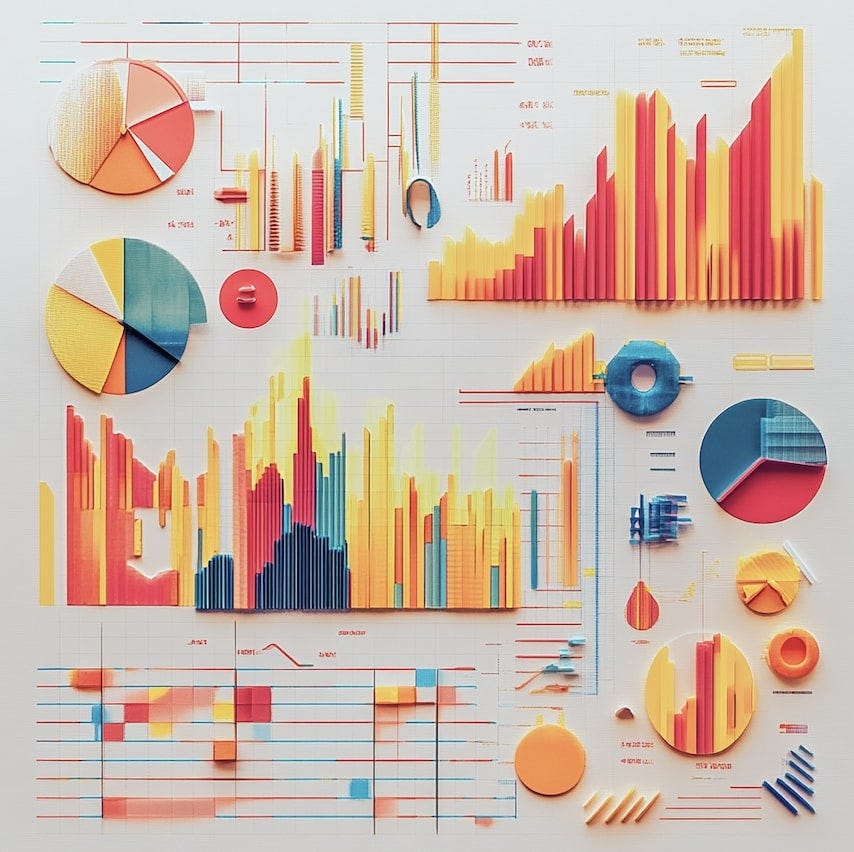I'm in the mood for writing another essay on the series - Logic vs. Intuition
Last week, we touched on the importance of Intuition in investing.
Today, let's flip to the other side, let's talk about Logic.
Specifically, how data is used in making investing decisions.
.
Data is useful when there's context and relevancy.
What I noticed is that it's common for investors making investing decisions based on data without context and relevancy.
You see, data is only useful if one knows how to interpret it.
Quite often, I see data being cited in investment presentations.
Data is interesting.
Data gives people a sense of certainty.
Data is persuasive.
Data tells a story and we can come to believe in something because the "data says so".
Data can also be misleading.
While the data presented tells a compelling story, a smart investor knows that data only tells half of the story.
Because of how the data is collected and gathered, there's a time factor affecting the "usefulness" of the data.
For example, if I were a sport betting man, the data of a winning game by the Oilers the next day would have zero value to me.
Why? Because the game is already over!
The data presented was from the night before.
It was about the PAST.
That data wouldn’t give me any competitive edge in making bets for the game the night before.
.
If you have been investing for a while, you know how the Federal Reserve or the Bank of Canada is usually (almost always) behind on what the economy is actually doing.
They raised the rate too slow during COVID.
Resulting in inflation going much higher.
Last week, the Federal Reserve made the first rate cut announcement by reducing half a percentage point.
They are again, late to the party.
They wanted to see the inflation data coming down to a number they are comfortable with.
Except, the latest data only reflects the economy from few months ago.
Think of a camera taking a photo of what the economy was like at the moment the data was collected.
It was a snapshot of what was going on at THAT moment of TIME.
The softening signs of the economy was reflected based on few months ago.
It takes time to collect the data and process the data.
Where the economy is at TODAY is not the same as the snapshot captured a while back.
.
What does this mean to you as an investor?
Don't accept all data at face value.
Ask yourself this:
How relevant is the data?
How "old" is this data?
Some data may make something sound intelligent at first, when in reality, it has very little value because it's no longer relevant.
What kind of data do you track in supporting you in making investment decisions?
Reply to this email and share with us
Eric Chang
New York City, NY, USA
September 24, 2024
Copyright © 2024 Why Alberta Now.
No part of this publication may be reproduced, distributed, or transmitted in any form or by any means, including photocopying, recording, or other electronic or mechanical methods, without the prior written permission of the publisher, except in the case of brief quotations embodied in critical reviews and certain other noncommercial uses permitted by copyright law.
The information provided herein is believed to be accurate and reliable, but Why Alberta Now does not guarantee its accuracy or completeness. The content is for informational purposes only and is not intended to be a substitute for professional financial advice. Why Alberta Now is not a financial advisor and does not provide personalized financial advice. The views and opinions expressed in this publication are those of the author and do not necessarily reflect the official policy or position of Why Alberta Now. The content may be subject to change without notice and may become outdated over time. Why Alberta Now is under no obligation to update or revise any information presented herein.
Investments involve risks, and individuals should consult with a qualified financial advisor before making any investment decisions. Prospective investors should carefully consider the investment objectives, risks, charges, and expenses of any investment before investing.




